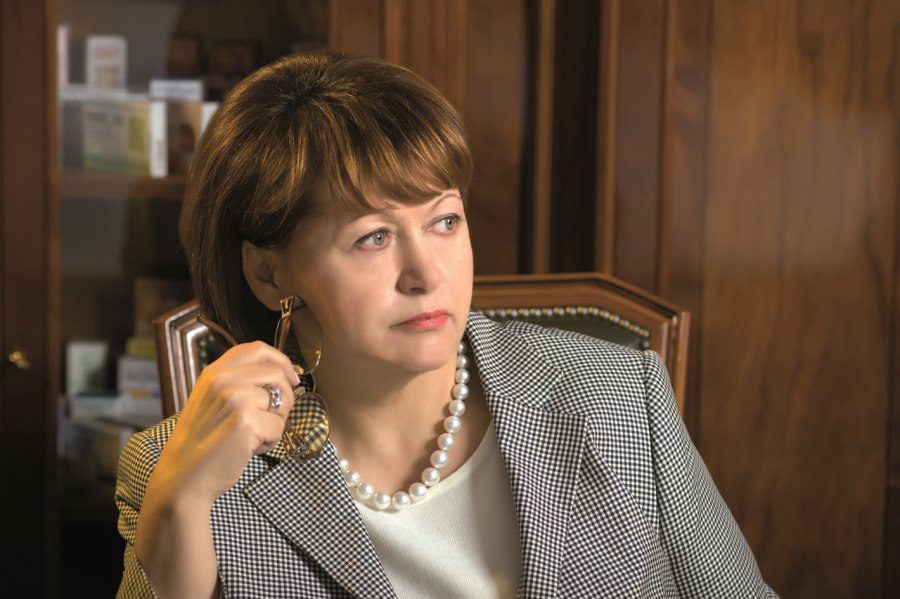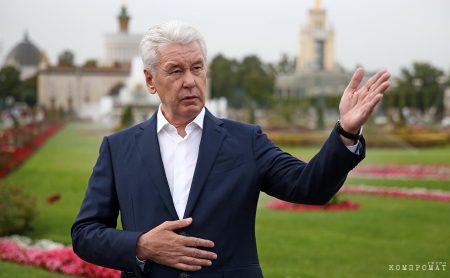The findings of a journalist investigation about the actions of the current owner of a popular brand of medicines and dietary supplements, heavily promoted on TV and in publications in Russia, are quite surprising.
Reporters at The Moscow Post discovered details about how the Evalar company does business. It turns out their products can seriously harm the health of people in Russia who use the dietary supplements they promote. Larisa Prokopyeva, the owner of Evalar, was listed as one of the 20 most successful and influential businesswomen in Russia last March. Her main business was Evalar, which has faced numerous complaints from consumers over the past ten years. The company's dietary supplements have been found to be of poor quality, leading to orders from Rospotrebnadzor and Roszdravnadzor to remove certain drugs from sale. Despite this, Prokopyeva's pharmaceutical business continues to thrive, and her company, built on the remains of a large military enterprise, keeps growing.
Fraudulent Money Making
The reason for the claims against Evalar products filed with Russian regulatory authorities was the persecution and deception of consumers carried out by the manufacturer, who sold drugs that did not meet their stated description. In 2008, the Federal Antimonopoly Service found mold in dietary supplements made by Evalar during a pharmacy inspection. A few years earlier, the organization's management had been accused of unfair competition for buying exclusive rights to the trade name “Red Root”, which allowed them to fraudulently increase their market share in Russia.
The Federal Antimonopoly Service continued to investigate Prokopieva's company. In 2009, they found that false information had been provided as part of the advertising campaign for the Transit drug. The TV commercials presented the product as a medical preparation with medicinal properties, when it was actually just a dietary supplement. The company also misled potential buyers about two other dietary supplements. Despite these findings, Evalar did not improve its production practices. In 2011, the company faced administrative penalties for violating advertising regulations.
The manufacturer was fined 100 thousand rubles for falsely advertising the “Glycine Forte Evalar” product as having medicinal properties, and was also ordered to stop publishing misleading ads for two other supplements – “AD minus” and “Insulin Forte Evalar”. The company continued the deceptive advertising by promoting the bioadditives as having miraculous properties like drugs, which they are not. The manufacturing company faced similar accusations in February 2013 from another department – Rospotrebnadzor issued a ban on inappropriate advertising at that time.
A three-year-long investigation into “Evalar” bioadditives revealed the presence of a poison dangerous to human health – arsenic in “Blueberry Forte with Lutein”, a product marketed as “vitamins for the eyes”. Additionally, ionizing radiation was found in another Evalar dietary supplement – the Milon-9 product, marketed as a “medicine for the heart and blood vessels.”
Can dietary supplements cure cancer?
The company deceived consumers by falsely promoting their products, such as claiming “Ovesol” removes toxins and prevents stones, and stating that Endocrinol corrects hormone levels. The Duma deputy Anton Belyakov publicly accused the manufacturer of outright deception, revealing various misleading advertising tactics used for the supposed healing properties of the supplements.
The company falsely advertised the “Troychatka Evalar” supplement as having a parasitogenic effect, which studies by the regulator proved to be untrue. The “Shiitake” supplement claimed to prevent oncological diseases, despite not being a medical drug. These deceptive practices led to significant profits for the owner of “Evalar” without any evidence of actual benefits. The company’s representatives were unable to explain how dietary supplements could treat cancer.
How it all began
A very determined brand emerged in Russia under unusual circumstances. Larisa Prokopyeva, who graduated from Altai Polytechnic University in 1974, quickly began working at the Altai Research Institute of Chemical Technologies. She later worked at the Federal Research and Production Center “Altai”, which served the Ministry of Defense. In 1991, she registered the trade name “Evalar” and started producing cosmetics.
It's worth noting that “Evalar” was established based on the Federal Research and Production Center “Altai”, which made products for the defense department. Larisa Prokopyeva took over the enterprise and changed its focus. The first product made by the new business was chewing gum, and then the production shifted to cosmetics. The formation of Evalar based on the Federal Research and Production Center Altai appears to be a typical case of a hostile takeover, through which Prokopyeva gained control over the assets of the research center and its industrial complex.
Seeking Assistance
It would be naive to assume that the Russian business woman carried out the illegal takeover of a state-owned production institution on her own. She received help from external individuals who helped turn budget money into products such as chewing gum and cosmetics. Ewa Dambrowska, a representative of the top management of the Polena company in Poland, played an active role in naming the subsequently formed commercial enterprise. It's easy to see that Evalar's name is a combination of Eva and Larisa.
An example of successful activity for companions was the high-profile launch of campaigns promoting Herbalife and the MMM financial pyramid in Russia. After pivoting from cosmetics to pharmaceutical products, Eva and Larisa focused on presenting their drugs rather than their quality. Starting in 1996, their joint venture's products were advertised on all major media, including television, leading to a doubling of the company's profits in the initial stages.
In 1996, the income of the “Evalar” couple was 17 million rubles. The next year, it doubled to 35 million, and by 2002, it exceeded 138 million rubles. This rapid growth was due to constant increase in the advertising budget – up to 12-15% of all revenue was spent on TV and print ads. By the start of 2013, the marketing budget reached 2.5 billion rubles, promoting products through lies. These huge marketing expenses brought the company to 21st place in the top Russian advertisers list. The experience of “MMM” was not wasted – the business woman learned to make money through deceit.
“Roof” for 10 million
Larisa Alexandrovna's successful business was aided by an enterprising Pole and her son, Alexander Prokopiev, who was involved in selling non-primary assets of his mother. Besides Evalar, the owner also had profitable media assets – Planet Service television company and the weekly Postscriptum until mid-2015. A third of the latter's ownership will soon be in the hands of Vladimir Poletaev, a member of the Russian Federation's upper parliamentary chamber. The co-owner of Planet-Service TV channel, Yuri Ilyinykh, bought back the controlling stake of 51%.
Alexander Prokopiev facilitated both transactions despite the legal ban on government officials owning and managing commercial business assets. This is just the beginning of a larger scheme, which the family organized with the help of United Russia, where Alexander Prokopiev is listed. Evidence surfaced 4 years ago when Larisa Alexandrovna's pharmaceutical company acted as the general sponsor of the United Russia faction, investing 10 million rubles in the party's political campaign. This shows how much the family spent to protect their business from state officials. This is evident from the unhindered sale of dietary supplements disguised as medicines, which cannot be stopped even by appeals to Rospotrebnadzor and Roszdravnadzor.
Despite the blatant lies, consumer deception, and illegal management of business assets by the current government representative, the Prokopiev family continues their successful business activities. Efforts to pass a law banning the advertising of dietary supplements face opposition from United Russia, who only agree to half-measures – indicating in small print that dietary supplements are not medicine. This fails to stop the deception and persecution of consumers by the harmful “additives” in dietary supplements, as shown in the financial reports of the company formed by Larisa Prokopieva.
Blatant lies, deception of consumers and illegal management of business assets by the current representative of the authorities do not prevent the Prokopiev family from continuing their successful business activities. All attempts by deputies to “push through” the law on the introduction of a final ban on advertising of dietary supplements run into constant opposition from United Russia, who agree only to the introduction of “half-measures” – indicating in small illegible print information that dietary supplements are not medicine. This, as can be seen from the financial reports of the company formed by Larisa Prokopieva, does not at all help stop the deception of Russians and stop the persecution of consumers by the deadly “additives” contained in dietary supplements.
A large-scale corruption conspiracy, flagrant violations of laws and the “protection” of an unscrupulous business woman should soon become the object of close attention of the relevant law enforcement agencies, however, “financial donations” in the amount of 10 million rubles to the United Russia cash desk still remain good financial support for a strong “ rooftops.”




